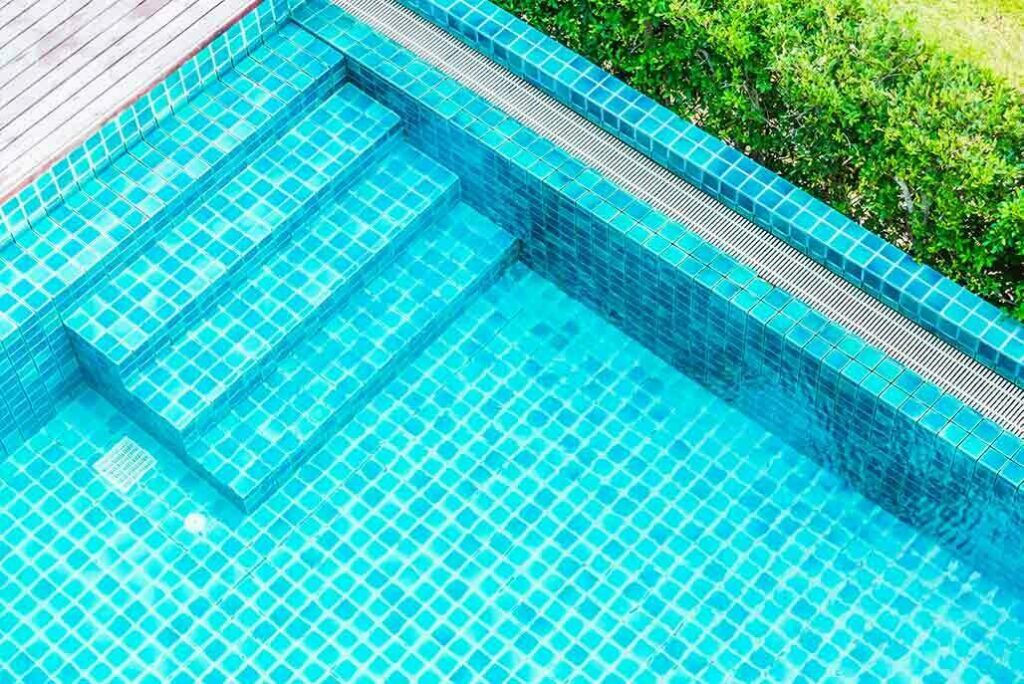
Installing tile in a swimming pool is a demanding job that requires materials capable of withstanding constant water submersion, chemical treatments, and temperature fluctuations. When it comes to setting up a thinset for your swimming pool, it is important that you carefully select the compound as it can determine the overall performance that you get from it. A weak or incorrect adhesive will inevitably lead to tile failure, cracks, and costly repairs.
This guide will walk you through the types of thinset mortar, key features to look for, and why making the right choice is critical for the longevity and integrity of your pool.
The durability of a submerged installation depends entirely on the quality of the materials used. The thinset mortar is the critical adhesive layer that bonds your tiles to the pool shell. If this bond fails, the entire water feature will lose its integrity over time and cracks may appear.
Finding the right kind of material is vital when you are going to opt for a submerged installation. A well-chosen thinset mortar can deliver powerful adhesion features for different kinds of surfaces and make sure that the tiles remain intact for a long period of time.
While there are many adhesives on the market, they generally fall into two categories for pool use: unmodified and modified thinset.
Unmodified thinset is a simple mixture of Portland cement, sand, and water-retention agents. While you can find numerous options for dry set mortars that can work beautifully in a swimming pool, they often require a liquid latex additive to be mixed in to achieve the necessary performance for submerged applications.
One of the best types of products that you can use for this purpose is a modified thinset mortar. It is always a good idea to work with a modified thinset mortar as they are more stable by nature. These mortars come pre-mixed with polymers, such as latex, directly in the powder. These polymers significantly enhance the mortar’s properties:
A polymer fortified mortar is an excellent choice for both exterior as well as interior installation of tiles.
To ensure a successful and lasting installation, your chosen mortar must meet specific criteria.
Investing in a premium thinset provides several long-term advantages:
A Laticrete thinset product can help you to achieve the best effect and make it possible for you to have a perfectly functioning swimming pool. By opting for the Laticrete 254 Platinum multipurpose thinset mortar, you can have greater control over the outcome of the tiling project for your swimming pool.
Key features include:
For minor repairs of a few fallen tiles without draining the pool, a specialized underwater-curing epoxy adhesive is often the best choice. However, for larger repairs or when the original installation is failing, the best practice is to drain the pool, remove the loose tiles, grind away the old thinset, and reinstall the tiles using a high-performance, polymer-modified thinset mortar rated for submerged applications. This ensures the repair is as durable as the original installation should have been.
Conclusion
The thinset mortar you choose is the foundation of your pool’s tiled surface. Skimping on this crucial component can lead to tile delamination, leaks, and a cycle of endless repairs. By selecting a high-performance, polymer-modified thinset rated for submerged use and compatible with your specific tiles, you ensure a beautiful and durable swimming pool that will provide enjoyment for many years to come.

Welcome to Tile Pro Depot! We established this site to service the specific needs of the tile installation professional. Tile installation tools, tile setting materials, premixed grout and more tile installation products online at Tile Pro Depot.